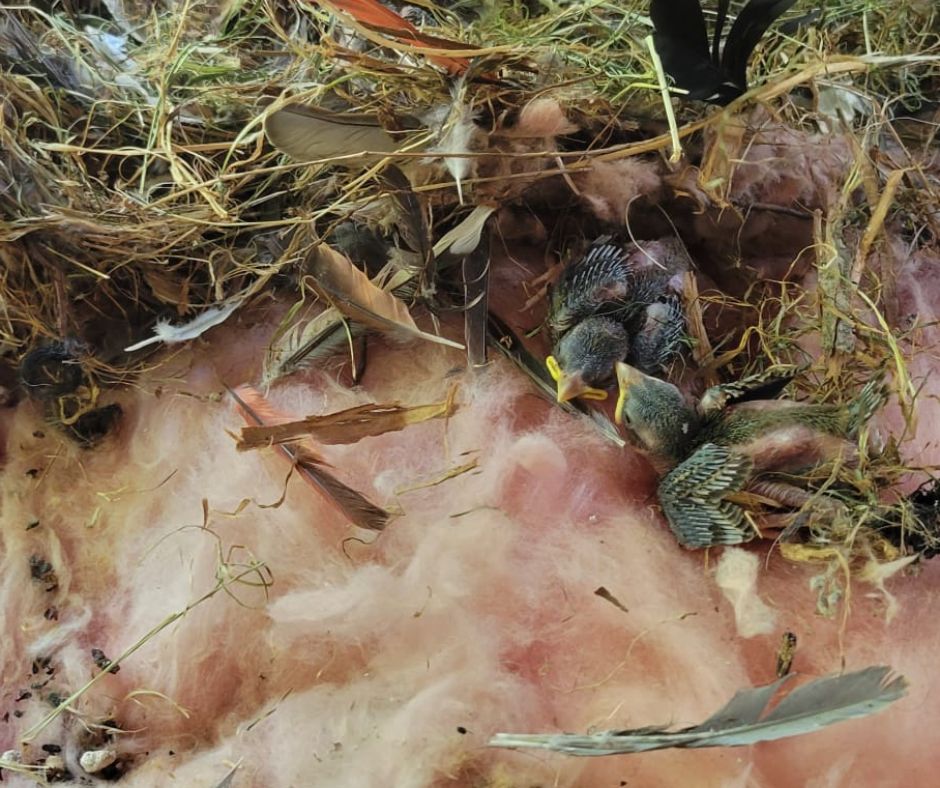 When To And When NOT To Call A Professional Wildlife Removal Company
When To And When NOT To Call A Professional Wildlife Removal Company
When To And When NOT To Call A Professional Wildlife Removal Company
When faced with a nuisance wildlife situation, you might find yourself wondering who you can call to help you out. We commonly receive calls from people across the Westchester County area that are wondering who they need to get in contact with to deal with the distressing situation at hand. Animal control and wildlife removal provide different services, as animal control won’t deal with animals on private property, and wildlife removal companies won’t deal with domestic animals. If you have a nuisance wildlife situation inside your attic, crawl space, or anywhere else on your property, contact the experts at Westchester Wildlife! Our team has the tools and the training to safely and humanely remove raccoons, squirrels, bats, chipmunks, groundhogs, and more!
Domestic Animals and Feral Cats
Professional wildlife companies do not deal with domestic animals. Domestic animals include cats, dogs, and all other animals that are kept as pets and not native to the area. If you have a colony of feral cats on your property, these would actually be under the jurisdiction of animal control. Similarly, if you have a lost dog, or if you have seen a dog running free through your neighborhood, that is also a situation for animal control. Westchester Wildlife does NOT deal with dogs, cats, or any other domestic animal.
Wildlife Inside Your Attic
When you have wildlife inside your attic space, this is a perfect situation for a wildlife removal company. Raccoons, squirrels, opossums, bats, and rodents will break into your attic and nest inside your insulation, often ripping it up and soiling it.Unfortunately, when nuisance wildlife have taken up residence on your private property, they are no longer within the jurisdiction of animal control. DIY removal is not recommended, because raccoons and bats can spread the rabies virus through bites and scratches, and all of these animals can become aggressive when handled or cornered. If you have a nuisance critter inside your attic, your best bet is to contact a licensed wildlife removal company.
If you have birds like pigeons, sparrows, or starlings nesting inside your attic, or inside your home’s exterior vents like a dryer vent, removing these birds and their nesting material is under the jurisdiction of a nuisance wildlife company.
Rabid Animals/Animals on Public Property
If there is a rabid, aggressive animal, domestic or wildlife, that is posing a direct threat to people, then this is a case for animal control. If there’s a raccoon on public property like in the road or in a public park, this falls under animal control. The government is responsible for removing dead animals from the road, and from other public property. However, if a deer is hit by a car, wanders into your yard and then dies, it becomes your responsibility and falls under the jurisdiction of a wildlife removal company. Wildlife removal companies handle dead animal removal for nuisance critters like raccoons, squirrels, deer, and more.
Bees and Wasps | Mice and Rats
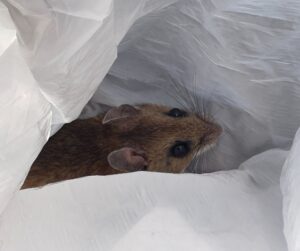 Bees and wasps are stinging insects that can become aggressive if they perceive you as a threat. This is worsened by the fact that bees and wasps often build their nests on porches, decks, and inside attic spaces, increasing the likelihood of a conflict with you. Bees and wasps are typically covered by pest control companies, however, Westchester Wildlife also offers bee and wasp nest removal services in the Westchester County area.
Bees and wasps are stinging insects that can become aggressive if they perceive you as a threat. This is worsened by the fact that bees and wasps often build their nests on porches, decks, and inside attic spaces, increasing the likelihood of a conflict with you. Bees and wasps are typically covered by pest control companies, however, Westchester Wildlife also offers bee and wasp nest removal services in the Westchester County area.
Similarly, issues with rodents like mice and rats tend to fall under the jurisdiction of both pest control companies and wildlife removal companies, as they are both pests and nuisance wildlife. If you have an issue with a rat or mice infestation in Westchester County, Putnam County, or Dutchess County, Westchester Wildlife can help! We offer the best rodent control and prevention services in the area.
Termites, Ants, and Other Pests
When it comes to insect pests like termites, ants, roaches, silverfish, and more, this falls squarely under the jurisdiction of a licensed pest control professional. While the Westchester Wildlife team can help with rodents and stinging insects, we do NOT deal with termites, ants, and other insect pests.
Animals In Your Yard/Under Your Deck
 Attics aren’t the only area on your property that nuisance wildlife will hang out in. Groundhogs are known to dig extensive underground burrows on your property, which can destabilize the soil and lead to your foundation cracking and settling. Groundhogs are also infamous for decimating gardens, feeding on the vegetable crops within. Skunks and foxes are known to dig out dens underneath porches, decks, and sheds. Moles and voles will also dig unsightly tunnels in your garden, with moles leaving behind kicked-up molehills of dirt, and voles leaving behind shallow trenches. You might also deal with opossums and rodents inside your crawl space, or raccoons inside your garage. When you have non-domestic wild animals causing trouble in areas of your property besides your attic, this is another situation where you would call a nuisance wildlife company like Westchester Wildlife.
Attics aren’t the only area on your property that nuisance wildlife will hang out in. Groundhogs are known to dig extensive underground burrows on your property, which can destabilize the soil and lead to your foundation cracking and settling. Groundhogs are also infamous for decimating gardens, feeding on the vegetable crops within. Skunks and foxes are known to dig out dens underneath porches, decks, and sheds. Moles and voles will also dig unsightly tunnels in your garden, with moles leaving behind kicked-up molehills of dirt, and voles leaving behind shallow trenches. You might also deal with opossums and rodents inside your crawl space, or raccoons inside your garage. When you have non-domestic wild animals causing trouble in areas of your property besides your attic, this is another situation where you would call a nuisance wildlife company like Westchester Wildlife.
Best Wildlife Removal Company in Westchester County
Whenever you need an issue with a nuisance wildlife problem resolved, whether it be a bat colony in your attic, a raccoon in your garage, a dead deer in your yard, or a groundhog digging up your garden, trust the wildlife removal experts at Westchester Wildlife. Our team of licensed wildlife removal experts will safely, carefully, and humanely help resolve your wildlife issue to protect both you and the animal. We service Westchester County, Putnam County, Dutchess County, Fairfield County, and more! Contact our team to get started today with a FREE estimate at (800) 273-6673!
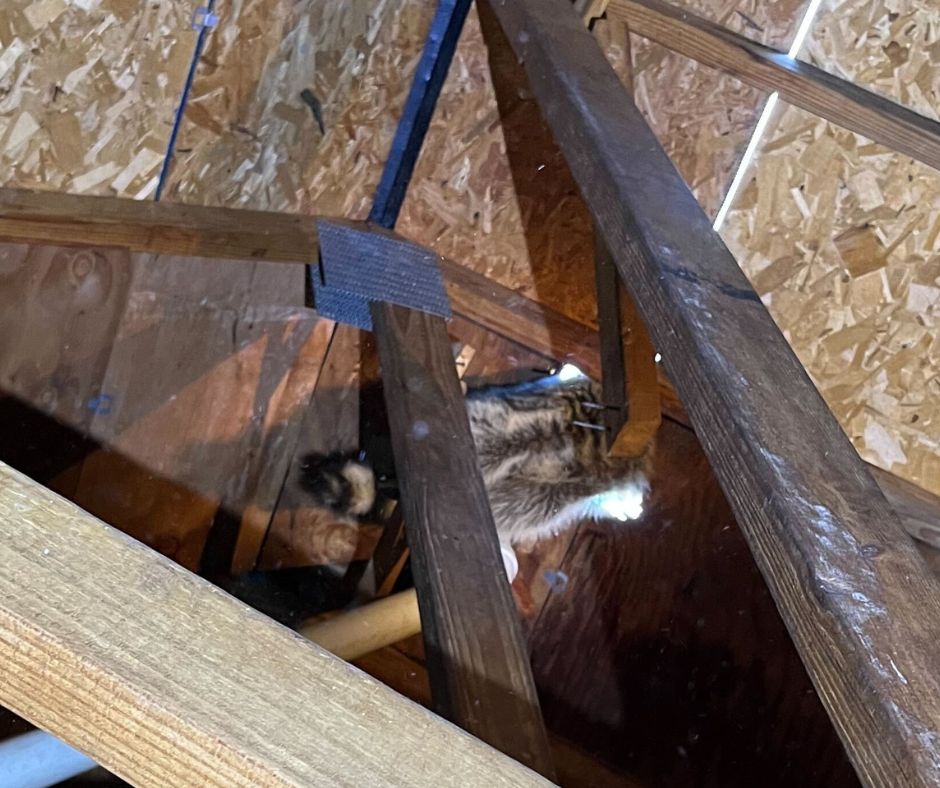 Do Raccoons Hibernate? Understanding Their Winter Behavior and How They Survive the Cold
Do Raccoons Hibernate? Understanding Their Winter Behavior and How They Survive the Cold
Do Raccoons Hibernate? Understanding Their Winter Behavior and How They Survive the Cold
Raccoons do not fully hibernate like bears and groundhogs do. If faced with severe temperatures and a lack of food, raccoons can enter a state of torpor, or decreased activity, to conserve their energy. Raccoons will only enter torpor when necessary, and they prefer to seek out warm shelter and abundant sources of food to survive the winter. Unfortunately, this often means that they will break their way into your attic in order to build nests inside, often ripping up your attic insulation and tearing through any ductwork inside the attic in the process. If you need raccoon trapping and removal in Westchester County, Putnam County, Dutchess County, Fairfield County, or Litchfield County, contact the wildlife removal experts at Westchester Wildlife today at (800) 273-6673 for a FREE estimate!
How Raccoons Survive the Cold
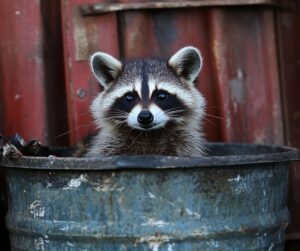 Raccoons do not hibernate during the winter, so they have several other body processes to help them survive the freezing temperatures and harsh conditions of winter. Raccoons, when faced with no other options, will enter a state of lowered activity called torpor, which is distinctly different from hibernation.
Raccoons do not hibernate during the winter, so they have several other body processes to help them survive the freezing temperatures and harsh conditions of winter. Raccoons, when faced with no other options, will enter a state of lowered activity called torpor, which is distinctly different from hibernation.
Torpor is involuntary and happens when faced with environmental challenges, while hibernation is a process that animals prepare for. Additionally, torpor doesn’t last for a long time, typically only a few hours to a few days, and raccoons will wake up to forage during this time. Hibernation on the other hand, lasts for months, and animals in hibernation do not wake up to forage. Raccoons often rely on stored body fat to survive the winter, and may engage in less activity in order to conserve their energy. Raccoons also have a thick, grey coat of fur that provides them with insulation against freezing temperatures and snow. However, raccoons still need to find sources of shelter during the winter, which might lead them to your home.
Where Raccoons Seek Shelter in Winter
During the winter months, raccoons will seek shelter to escape the freezing temperatures and precipitation. Sometimes this can be a natural shelter, like the inside of a hollow tree or log. Raccoons will also seek shelter inside rock crevices, and they will oftentimes take over burrows that were originally dug out by groundhogs, skunks and foxes but have since been abandoned. However, nowhere is more perfect for a raccoon den than your home.
What Drives Raccoons Indoors During the Winter
During the winter, food sources are much more scarce for raccoons. Plants are dead and insects are underground, so the pickings are slim for a hungry raccoon. This often drives them into urban and suburban neighborhoods, as our homes and businesses provide them with plenty of food. Unsealed trash cans, full of food scraps, provide a perfect food source for a hungry raccoon, as do compost piles. If you leave pet food outside, this provides an easy meal for a raccoon, as do bird feeders.
Raccoons will build their nests underneath your deck/porch, inside a shed or crawl space, or especially inside your attic, for the warmth, safety, and seclusion these places provide. Your attic provides a perfect nesting spot for a raccoon seeking to escape the cold, as it offers protection against predators and the elements. However, raccoons aren’t a house guest you want to willingly shelter, as these mischievous critters can tear through HVAC ducts, destroy your attic insulation, and spread harmful diseases and bacteria.
Signs of a Winter Raccoon Infestation
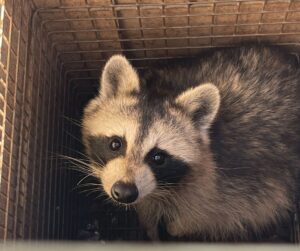 Raccoons are one of the most destructive nuisance wildlife in the Westchester area. Raccoons will exploit the tiniest cracks in your soffit, gable vents, ridge vents, or roof shingles. When a raccoon is nesting inside your attic, you might see damaged soffits, bent or destroyed vents, and missing shingles, signifying where the raccoons are entering and exiting from. Once inside, these critters will start ripping up and shredding your attic insulation, tearing through HVAC ducts, and scratching/gnawing on wooden beams and wires. Raccoons are mostly active at night, so if you are hearing scratching or loud shuffling sounds coming from your attic space, this is a sign that you have raccoons spending the winter in your home.
Raccoons are one of the most destructive nuisance wildlife in the Westchester area. Raccoons will exploit the tiniest cracks in your soffit, gable vents, ridge vents, or roof shingles. When a raccoon is nesting inside your attic, you might see damaged soffits, bent or destroyed vents, and missing shingles, signifying where the raccoons are entering and exiting from. Once inside, these critters will start ripping up and shredding your attic insulation, tearing through HVAC ducts, and scratching/gnawing on wooden beams and wires. Raccoons are mostly active at night, so if you are hearing scratching or loud shuffling sounds coming from your attic space, this is a sign that you have raccoons spending the winter in your home.
Raccoons dig latrines inside your attic insulation to deposit their waste, so a foul smell coming from the attic can signify a problem. This can get even worse if the waste accumulates in such large quantities that it begins to seep through the floor.
If you come outside and see your trash cans knocked over with trash strewn about your yard, or pet food missing from your dog’s bowl despite him being inside all night, you might have a raccoon feasting on your food scraps. It’s important to deal with a raccoon invasion as soon as possible, as these nuisance animals can spread harmful diseases, bacteria, and parasites, like rabies, raccoon roundworm, tularemia, leptospirosis, and more.
How To Prevent Raccoons from Invading Your Home This Winter
There are several easy ways to prevent raccoons from setting up shop in your home this winter:
- Secure all trash cans with a tightly-fitting lid, and remove all outdoor food sources
- Trim tree branches near your home to reduce easy access to the roof for raccoons.
- Contact a licensed wildlife removal company like Westchester Wildlife to locate, seal and fortify all potential entry points on your roof
- Contact Westchester Wildlife to install chimney caps and roof vent guards to keep raccoons out
How Do I Get Rid of Mice in Westchester?
Mice are drawn to food, clutter, water leaks and insulation inside the home, and they can contaminate your food supply, create fire hazards with their gnawing habits and lower the effectiveness of your insulation. Westchester Wildlife can help. We offer effective mice control solutions in Westchester County, NY as well as Putnam County, Dutchess County, and Fairfield County, CT. We will use a combination of mice control techniques including snap traps, bait stations, and exclusion work to eliminate your current mice problem and keep any more from popping up. Contact us today at 800-273-6673!
